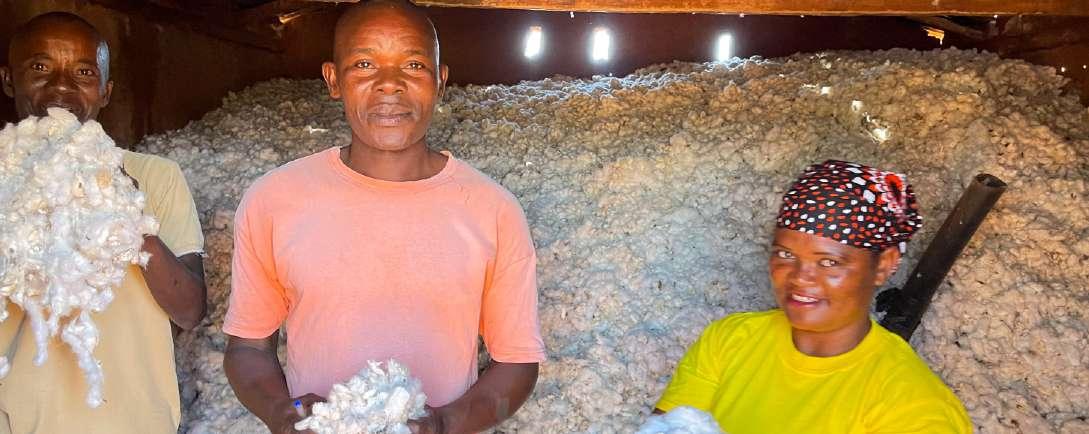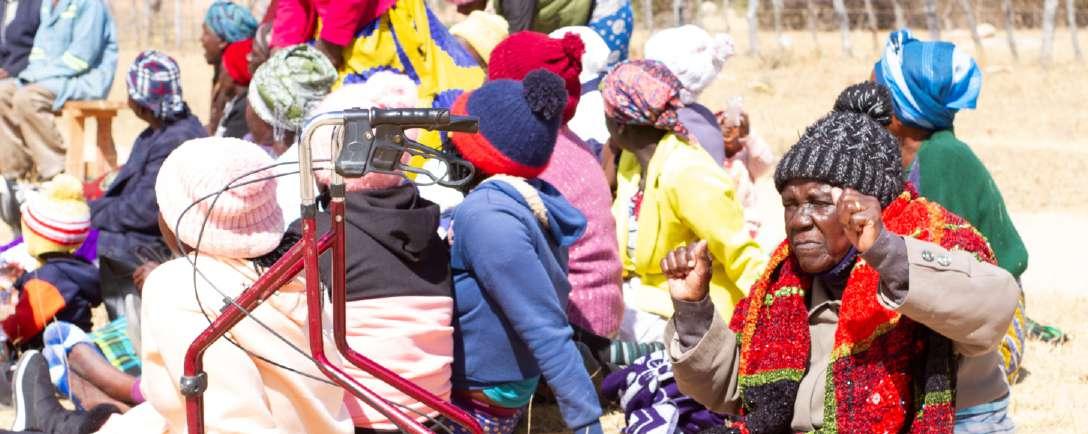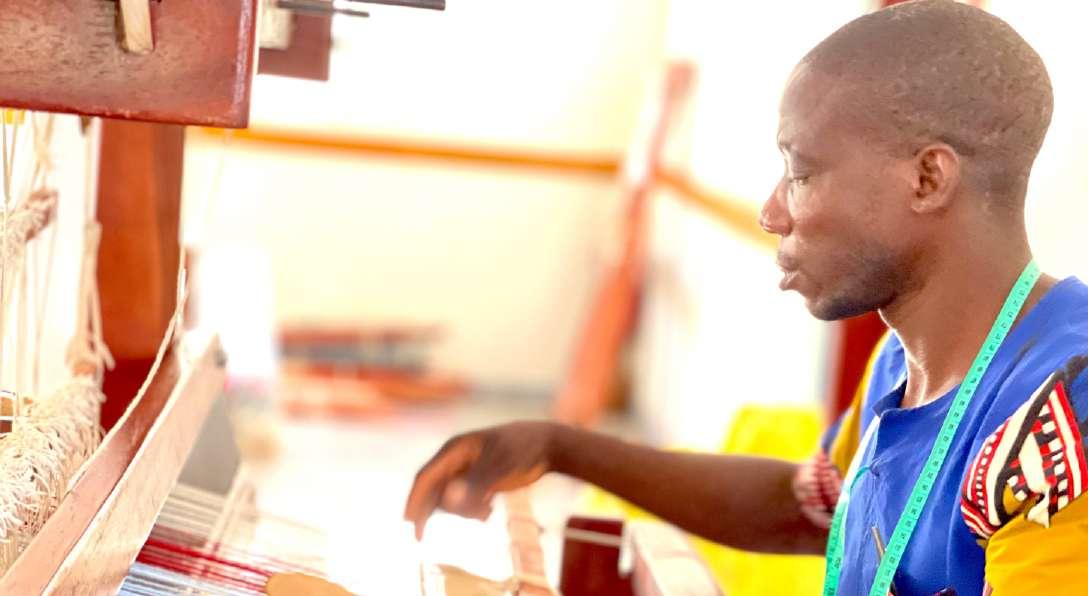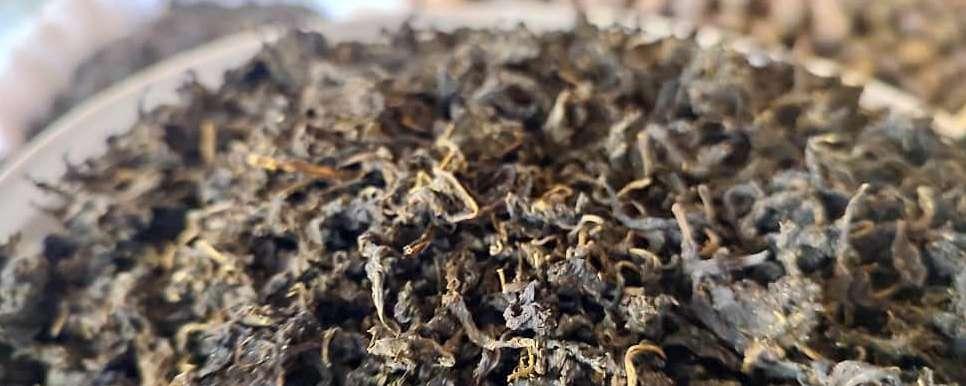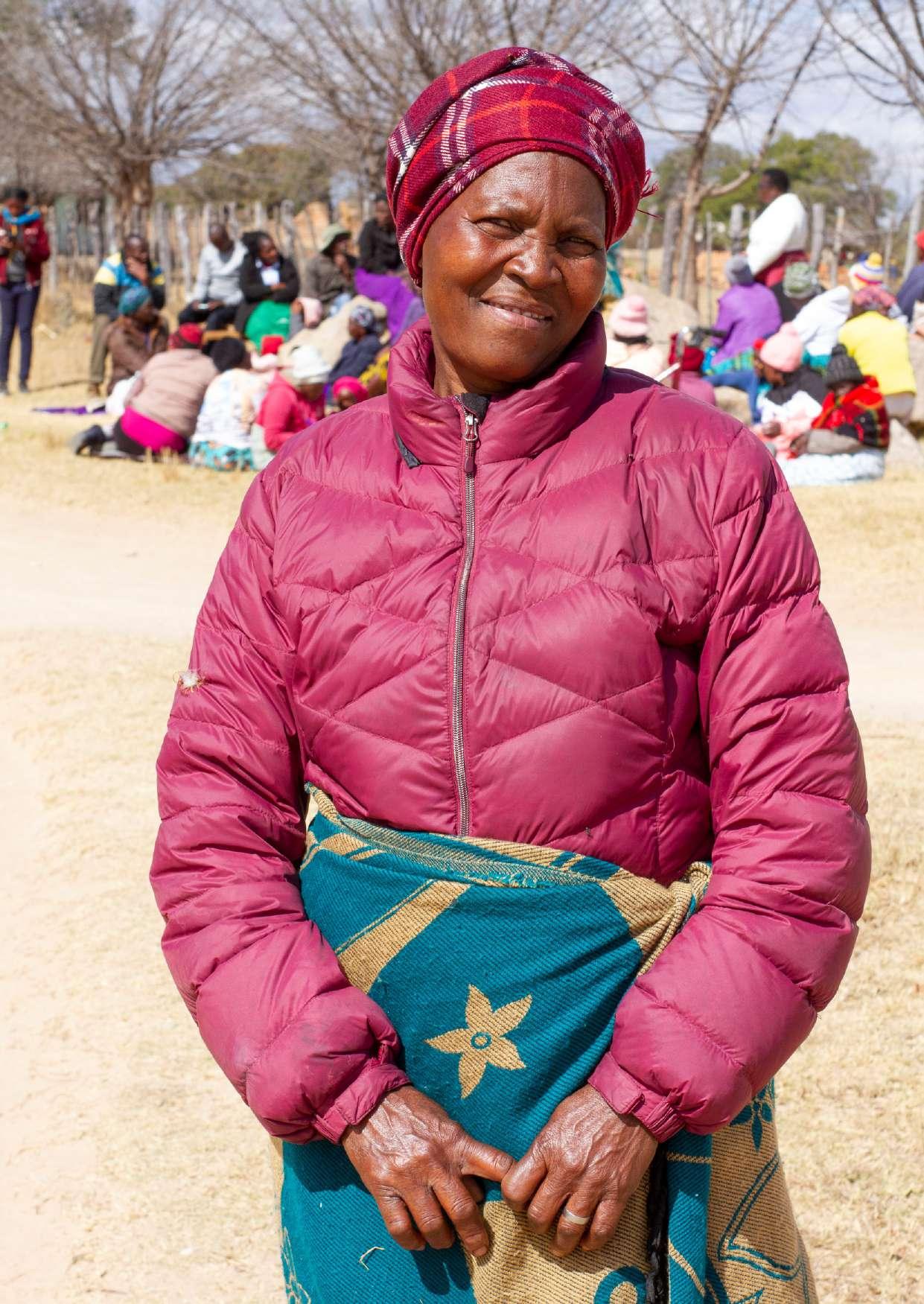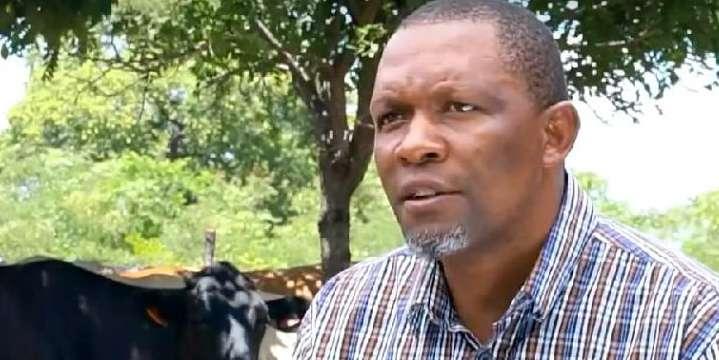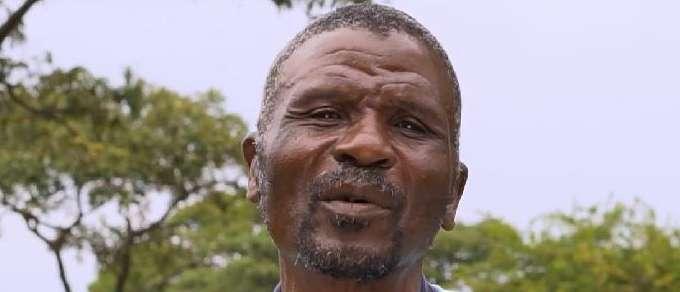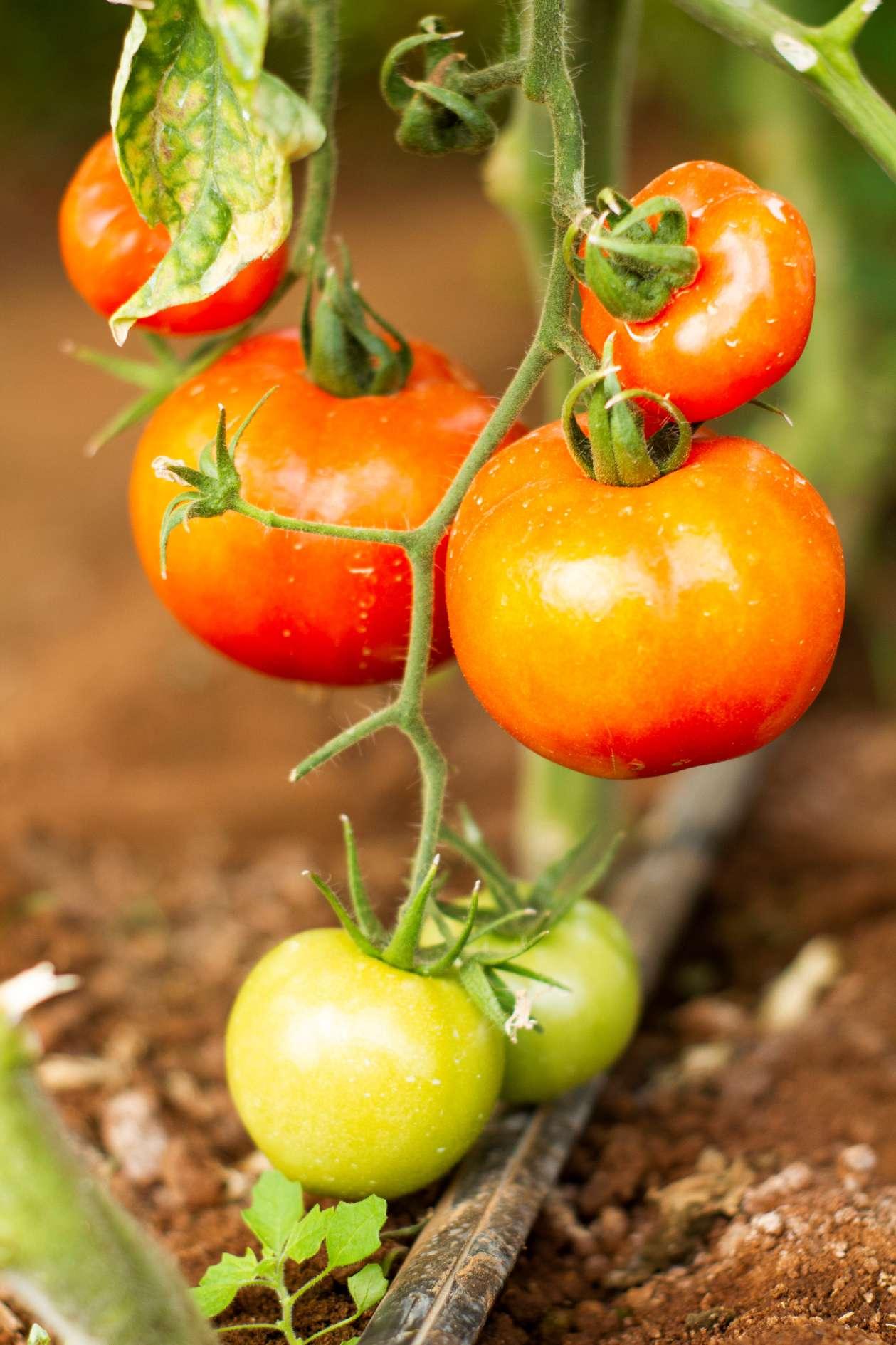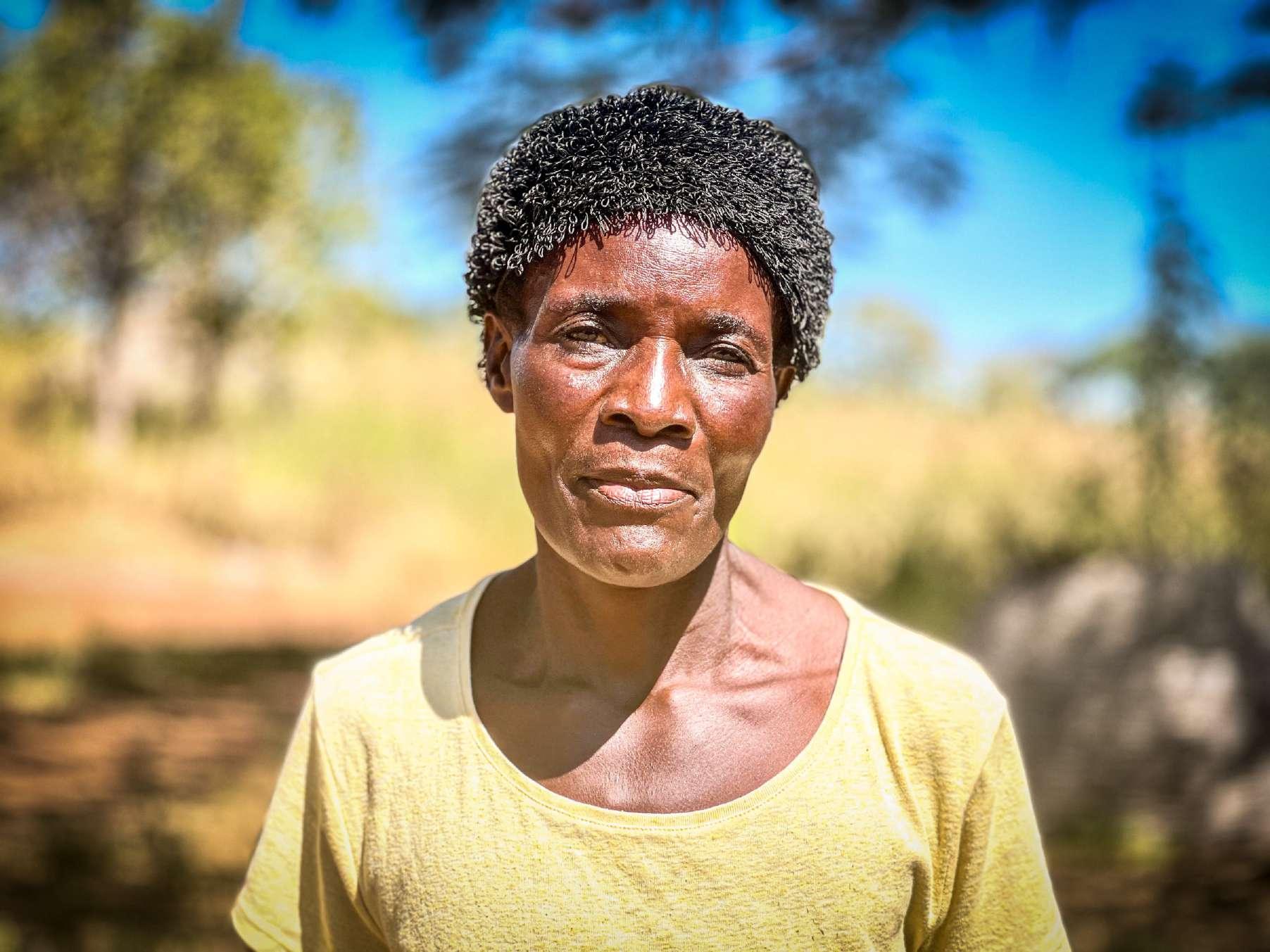Effective Bulletin




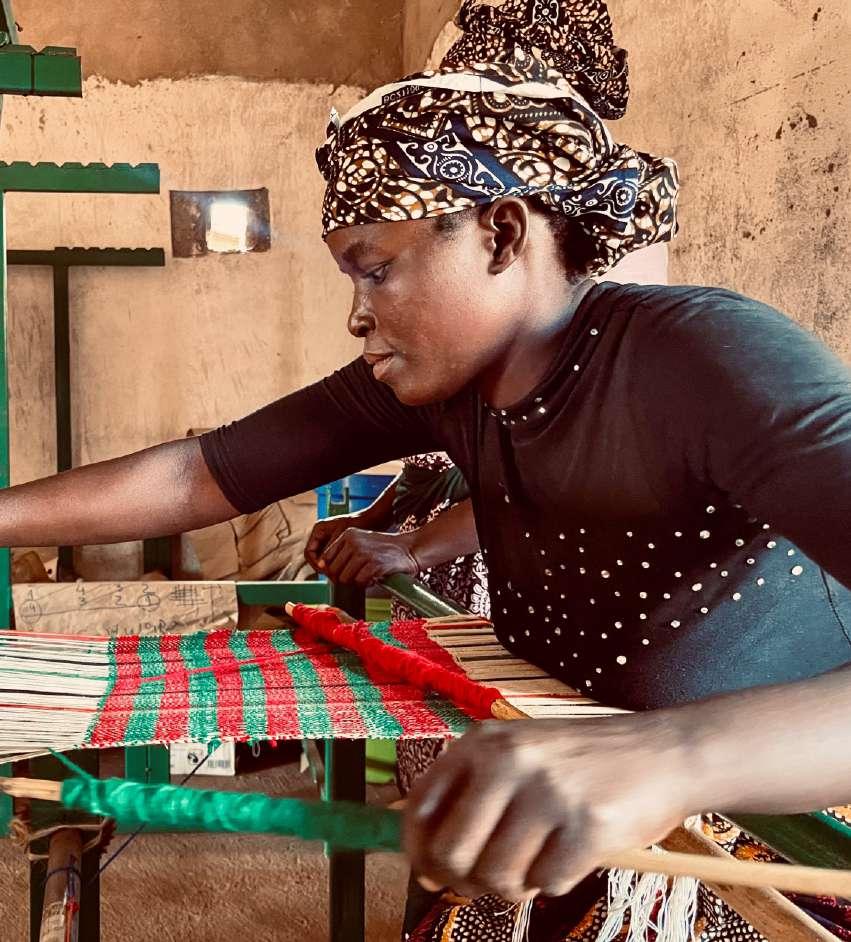

Welcome







Welcome
In this edition of our newsletter, we are excited to bring you stories from cotton farmers diversifying to ensure sustainable income throughout the year, female dairy farmers realising their potential in a male dominated value chain, female farmers championing agroecology and member-based organisations joiningWeEffectaspartnersunderanewSwedishgovernmentfundedproject.
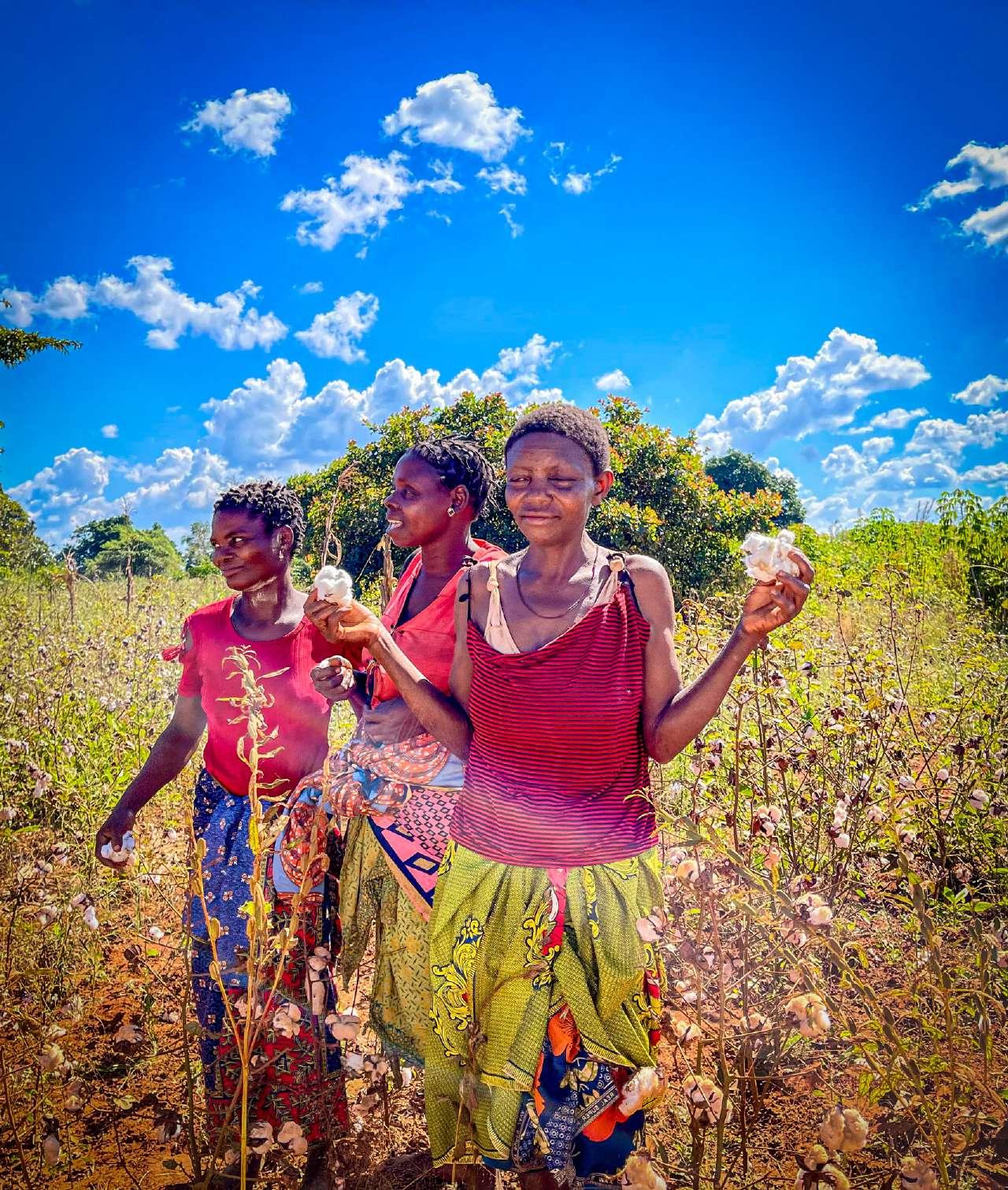
Enjoyfindingoutmoreaboutwhatwehaveachievedinthepastfewmonthsandmakesureyoufollowus on facebook.com/weeffectsouthernafrica, twi�er.com/weeffectsa, h�ps://www.instagram.com/weeffectsouthern and www.weeffect.org toseevideoclipsandpicturesfromallour work with partners in Southern Africa.
Bhekumusa Moyo Regional Communications and Advocacy Officer

WELCOME TO OUR NEWSLETTER
ZAMBIAN WOMEN ON A PATH OF SELF-SUSTENANCE FARMERS FRUSTRATED AND ANGRY OVER THE LOW COTTON PRICES IN ZAMBIA

FROM COTTONFARMING TO COOKING:WOMEN-LED BUSINESSES MAKING STRIDES.
SMALL HOLDER DAIRY FARMERS IN MALAWI GET A BOOST
AGROECOLOGY: A HOME-GROWN CLIMATE CHANGE SOLUTION
LEARNING TO LEARN
LUSAKA HOSTS LEARNING AND REFLECTION EVENT
SIDA- CIVSAM PROJECT MOZAMBIQUE LAUNCHED
FebbySipatunyanahadtomove
backtoherparents'homestead after her divorce. She left everything she had worked for at her husband's home.
SipatunyanaisamemberoftheBilili Women'sClubwhichispartofthe areaAssociation.She says, “To improve my livelihood and to be food secure for myself and family, I joined the Women's Club which is involved in savings'.
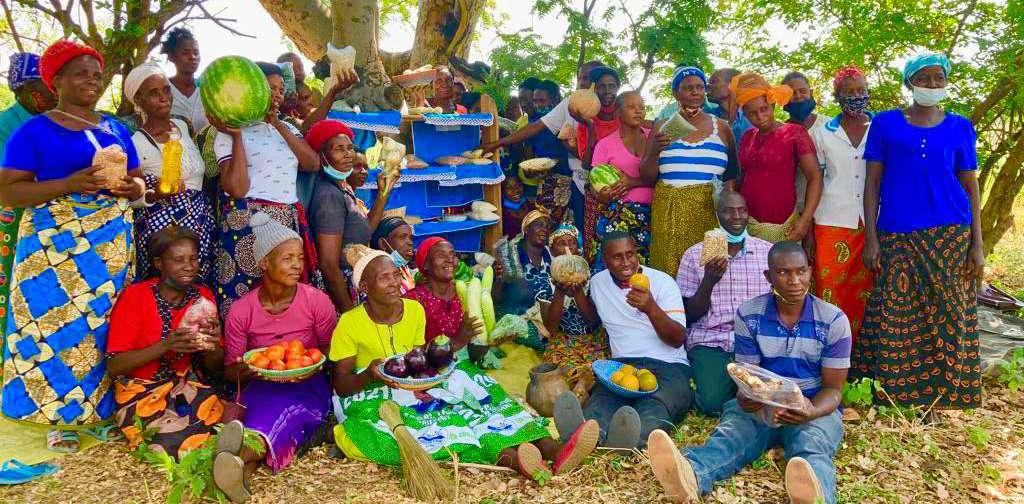
“Through my participation in the group I was able to access a crop pack (5kg sunflower) and I harvested 15 x 50kg bags of sunflower. I was able to process the sunflower into cooking oil which I sell in my community and from which I was able to raise money to buy a cow,' says Febby.
“This did not only improve my household food security, but also provided for me to buy fertilizer to grow more maize for my family”, she added.
Febby has been able to use the training in agriculture from lead farmers on the project to ensure she tended to her crop and has been able to have a good yield of crop and increased her crop production.She has been able to link with the agricultural extension officer in her areas to give her technical support to be able to manage her production. Febby has been supported with skills to invest further in her farming and grow her business.
A key focus of We Effect's project is supporting farmers to develop more sustainable land management practices as many are faced with the harsh realities of the impact of climate change. We Effect works to promote agroecological principles and support farmers to reduce reliance on harmful chemicals.
“Through the training from lead farmers, the cost of production has reduced as I am able to use organic
fertilizer and do not need to use chemical fertilizers which are expensive. The skill in organic farming has improved my yield and increased the health of the crops that I grow,” she concluded.
The Women Economic Empowerment Project is a 75 million SEK project supported by the Swedish Embassy of Lusaka. The main aim of the project is to advance women's economic empowerment to ensure the capacity of women to participate in, contribute to and benefit from agricultural value chainsandprocessesinwaysthat affirm the value of their contributions, respect their dignity, promote equality in Eastern, Western, Southern and CentralProvinces.Theprojectis being implemented in eight districts of the Eastern, Central, Western and Southern Provinces ofZambia.
WomenEconomicEmpowermentintheCottonValue Chain (WEECVC) is beingimplementedbyWeEffect RegionalOfficeinSouthernAfricainpartnershipwith HandloomAssociation,HandloomTextilesand TechnologiesAssociationofZambia(HATTAZ), GinnerAssociation,theZambiaCottonGinners Association(ZCGA),twofarmerorganisations,Fórum NacionaldeProdutoresdeAlgodão(FONPA)and ZimbabweFarmersUnion (ZFU),andtheAfrican InstituteofCorporateCitizenship(AICC). Collaboratorsincludesginningcompaniesandengages withstrategicstakeholdersinthecottonsectorat national,regional,andinternationallevel.Someof theseareBetterCotton(BC),CottonMadeinAfrica (CmiA),GovernmentMinistriesandDepartmentsin thefocuscountries,researchinstitutionsandregulators.
CottongrowersacrossZambiahavecomplained
overthisyear'ssellingcottonprice.Some traditionalleadersintheareassaytheir communitiesareangrythatthecottonpriceis disadvantagingfarmers.Thetraditionalleaderssay farmersarecurrentlysellingtheircottonat40%lowerper kilogram ascomparedtolastseason,citingcompanies likeAllianceGinneries,C.G.L,ChinaCotton,Highlands Companyamongother.
MagretBandafromSandweChiefdomwhoispartofthe farmersundertheWomenEconomicEmpowerment throughtheCottonValueChainProjecthighlightswhat thismeansforfarmers, “The last harvest was not as good, we had challenges with infections on our cotton hence we need more chemicals as we were given on the demo plots and in good time. The ZWK6.50 per kg cotton price is not helping at all. Imagine last season the price was ZWK15.00 per kg which was very good, and farmers were happy as it helped us cover the costs of production. The price is affecting us because most of the harvest is paying back loans.”
Thetraditionalleaderssaytheyareconcernedthattheir subjectsarebeingexploitedaddingthatregardlessof
theircropoutputfarmerswillstillhavetopaybacktheirLoansto cottoncompanies.Meanwhile, ChiefChanjeofChipangaliDistrict whospokeonbehalfofhispeopleisappealingtotheCompaniesto seriously consider theplightofthefarmerstobuilda good relationship.ChiefChanjesaysChanjeandChikuwechiefdomsare someofthechiefdomswhonormallyconservenaturethroughthe guidanceofCOMACOaswellas bio-diversification andbeekeeping.
Magret adds, "We implore the government and Cotton Board of Zambia to give us better prices and they need to be involving us the farmers in meetings to discuss with government and they should reduce the loans interest so that farmers can have a better return from harvest".
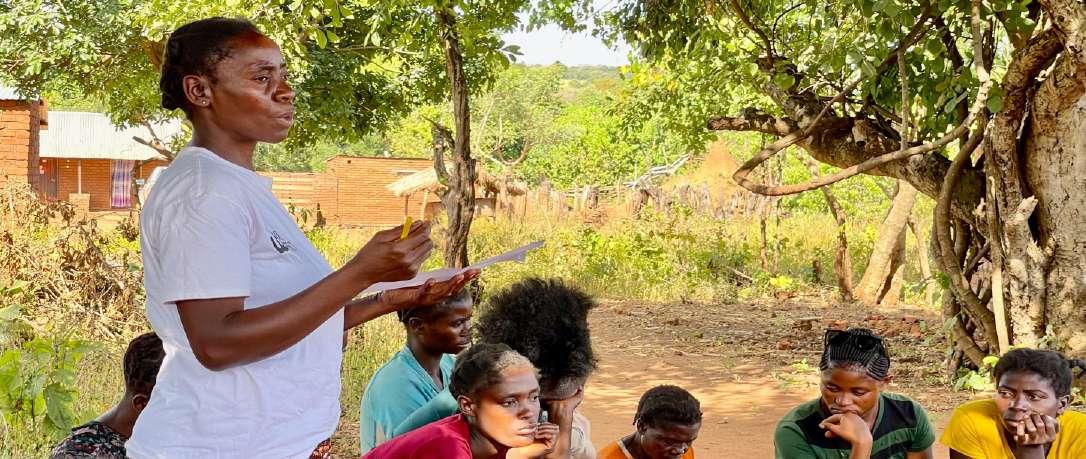
Sheisnotaloneontherollercoasteroffrustrations.CatherineNdelwa ChuluofChilumbaVillageinMambweDistrictalsolamentsthe harvest.Shesaysotherfactorswhichaffectedtheharvestarelinkedto climatechangewhichsawfloodsintheareawhichresultedinlow harvest.
Catherinebelievesthattoreducethelossesandincreasetheyield, “we need to plant early and hope that the rains will not be bad coupled with your (WE Effect) continued support with regards to the farming lessons, we will find profits and better yields to cushion the losses, I also invest in groundnuts and soya beans. Soya beans usually works well as I get good money and support my children to attend school. The cotton price is severely affecting us because we are hungry and poverty levels are increasing. We are requesting audience with the companies so that they could hear our concerns and cries,'' sheadds.
TherehavebeenfluctuationsinthecottonpricesinZambiathisyear. Withalotoffarmersrelyingonloans,theunstableyetlowpriceis dealingfarmersaheavyblowastheypreparefornextseason.Thereis urgentneedtoadvocateforconsistencyinpricingandforgovernment toberesponsibleforpriceregulation.Onanothernote,thereisneed totrainfarmerstodiversifyaswellasvalueadditiontotheircotton beforeitisthrownintothemarket.
FROM COTTON FARMING TO COOKING: WOMEN-LED BUSINESSES MAKING STRIDES.
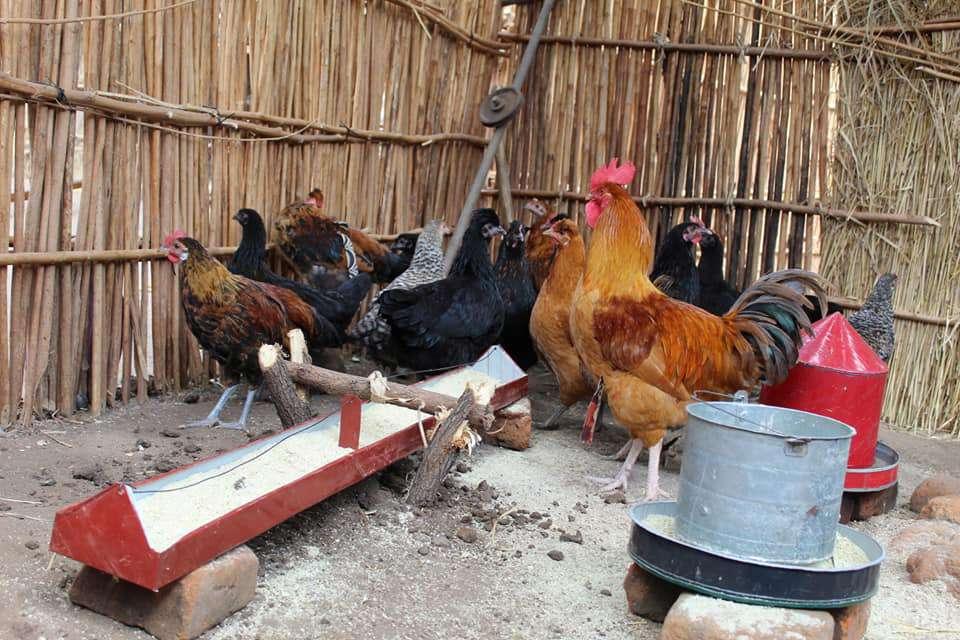
Areaisoneoftherural communitiesnestledwithcotton fieldsinMangochiDistrict,Malawi. Despitegrowingmaizeasastaple,most communitymembersarehardatwork, extensivelyfocusingonsmallholding cottoncultivation.ThewomenofTsanya BusinessGrouphavebeentoiling tirelesslyunderthescorchingsun, dedicatingtheirlivestothecultivationof cotton.Forgenerations,theirfamilies havereliedsolelyoncottonfarmingas theprimarysourceofincome,often strugglingtomakeendsmeet.
The WEECVC projectwasan opportunityforthewomentotransform theirlivesandbreakfreefromthe limitationsofcottonfarmingalone.Filesi Paseli,oneofthegenderchampionsin thegroupsays,“I used to think cotton farming was the only option for us, but we realized we could do more with our skills and determination aswomen”.
Thelivesoffemalecottonfarmerswere veryinsecureanduncertain.Following theproject's trainingineconomic empowerment,andwomen'srights, Tsanyawomen'sgroupbegantoexplore alternativeincomestreamsthat complementedtheircottonfarming expertise.Theyventuredintopoultry production,bakery,andrestaurant businesses.
MiriamZimphwayi,Treasurerforthe groupsays, “We arrived at this idea for us to diversify our sources of income while adding value to the resources we already possess. We have been involved in the Sustainable Cotton Project for the last 3 years and the project empowered us to start our own Village Savings and Loans so that we can source funds to buy our cotton inputs. Initially we used to share out this money but this time around, after trainings in business management and entrepreneurship and income diversification under the project, we decided to use the shares to start our businesses instead of sharing the money,” narrates Miriam.
Tsanyaisjustoneofsuccessfulbusinesses inNankumba, there areover33businessgroupsforwomeninthisarea. Thebusinessesrangefromcommoditytrading,horticulture production,poultryfarming,goatfarmingandbeekeeping.
“This area is a Muslim dominated area where women are not regarded as part of development. But through the WEECVC project, this narrative is changing as we see men supporting their women to be part of the businesses, traditional leaders creating safe space for women to succeed like today, the bakery, and the restaurant belongs to a Group Village Headman who has rented it out to these women, this is a change that we have been advocating for,” Jonesfurtherdetailed.
TsanyaWomen'sGrouphasestablishedapoultryfarm wheretheyarerearinglocalchickens.Theyarealsousing thechickendungtoproducemanuretobeusedincotton fieldsaspartoforganiccottonproduction.Through collaborativeefforts,thewomenhavebeentaughteffective farmingtechniques,properanimalcare,andhowto maximizeproduction.Thewomenarenotonlyexpanding their skill-set,buttheyarealsoamodelforothermembers ofthecommunity.
Tsanya women's group journey from cotton farming to poultry production, bakery, and restaurant businesses is a symbol of transformation and empowerment. It demonstrates the power of unity, determination, and continuous learning in paving way for a brighter and more equitable future. Through their courage and innovation, they are slowly turning what was once a simple cotton field into a vibrant and thriving community where women are the driving force behind a diverse and sustainable economy.
WomenEconomicEmpowermentintheCottonValueChainis beingimplementedbyWeEffectRegionalOfficeinSouthernAfrica inpartnershipwithHandloomAssociation,HandloomTextilesand TechnologiesAssociationofZambia(HATTAZ),Ginner Association,theZambiaCottonGinnersAssociation(ZCGA),two farmerorganisations,FórumNacionaldeProdutoresdeAlgodão (FONPA)andZimbabweFarmersUnion(ZFU),andtheAfrican InstituteofCorporateCitizenship(AICC).Collaboratorsincludes ginningcompaniesandengageswithstrategicstakeholdersinthe cottonsectoratnational,regional,andinternationallevel.Someof theseareBetterCotton(BC),CottonMadeinAfrica(CmiA), GovernmentMinistriesandDepartmentsinthefocuscountries, researchinstitutionsandregulators.
“The coming in of this project in our community has made us more cohesive than before even the Chief is on the forefront encouraging members to take part in this developmental work”, these were the words of Rodrick Mbango, the Chairperson for Mpasa Milk Cooperative in recognition of the We Effect, Agricord and CREMPA programme.
A critical challenge for diary farmers in Malawi is accessing feed for their livestock. ThiswasthefocusoftheMalawiDairyValue Chain programme to equip farmers with the knowledge and resources to produce highqualityconcentratefeedfortheirdairycows. This requires artistry and skill. Th project focusesonusingthewasteandresiduesfrom other crops to produce this feed. Farmers havenotonlylearnedtoprocesslegumesand maize into concentrates but have also used thediesel-poweredchuffcutterstogrindcrop residuesintohay,therebyensuringaconstant supplyofnutritiousfeedfortheirlivestock.
Five Milk Bulking Cooperatives (MBC), namely Ludzi, Mapuyu, Mpasa, Mpalo and Magomero are direct beneficiaries from the project and a testimony of its success. The impact on the average dairy milk yield has steadilyrosefrom8litresto12litrespercow perdayforatotalof826dairyfarmers(men 337,women432and57youths).Theproject has been providing training on feed production and encouraging preservation of crop residues.
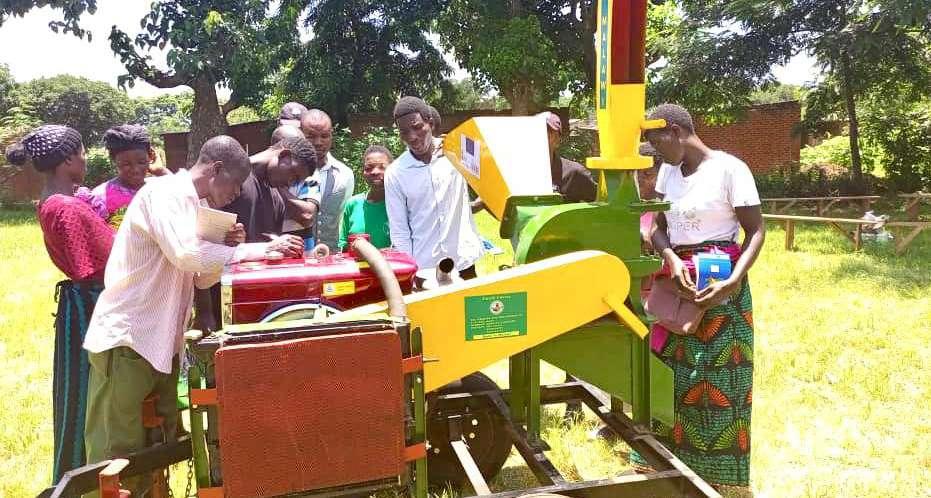
As We Effect our commitment is to ensuring women have increased access to opportunities within male dominated value chains. By ensuring access to highquality feed locally, the initiative has alleviated the burden on women who previously had to travel long distances to source livestock feed in dambos/ wetlands, especially during the dry season. With the newfound ability to produce and preserve feed from within, women now save considerable time and redirect their efforts towards other income-generating activities or taking care of their families.
“Before I received the training, my cow was producing 6 liters of milk per day. After receiving the training, I made the dairy feed using the locally available ingredients and my cow is now producing 11 liters per day and I am sure that milk volume will keep increasing.” narrates Emilida Katsili from Mpasa Milk Dairy Cooperative in Dowa District. Emilida is one of the successfulWomen Farmers in thedistrict.
WeEffectsupportsCREMPAtosupportfarmerstoadapttoandmitigatethe negativeimpactofclimatechange.Theprojectdevelopsstrategiestoensureno wastefromdiaryfarming.Farmersareutilizingthismanureforgrowing horticulturalcropsaspartofwintercroppingtosupplementproducefromarable farming.
“My cow is in good health and producing more milk than before.'' saysJessy ChikusefromMagomeroMilkBulkingCooperativeinDedzaDistrict
TheAgricord-MalawiDairyValueChainproject,iscurrently beingimplementedbytheCentralRegionMilkProducers Association(CREMPA)withgeneroussupportfromWeEffect andhasbroughtabouttransformativechangesinthelivesof dairyfarmersinthecountry.TheMalawiDairyValueChain programmeseekstoequipfarmerswiththeknowledgeand resourcestoproducehigh-qualityconcentratefeedfortheir dairycows.
Agroecologyisdeeplyrootedin
theecologicalrationaleof traditionalsmall-scale agriculture,representinglong establishedexamplesofsuccessful agriculturalsystemscharacterizedbya tremendousdiversityof domesticated cropandanimalspeciesmaintainedand enhancedbyingenuoussoil,water,and biodiversitymanagementregimes, nourishedbycomplex traditional knowledgesystems.
ApartnershipbetweenWeEffectand WomenandLandZimbabwehas createda critical opportunitytosupport andstrengthenwomenfarmersto embraceagroecologyasameansof sustainablefarminginthewakeof climatechange.EllenMakobere,a memberoftheRuralWomen AssociationfromShurugwiDistrictin Zimbabweisasmallholderfarmer who hasbecomeachampionofagroecology (AE)inherdistrict.
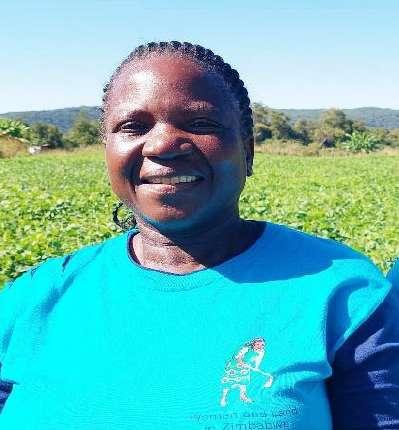
Herjourneyhas motivated many womeninhercommunitytoadopt agroecologicalpractices. “I volunteer in
community to teach other farmers agroecology. It hasn't been easy but through the capacity building from Women and Land, I am able to mobilize other women farmers and have practical sessions”, shesays, “I feel it is now my duty to pass on the knowledge I have gained to guarantee sustainability for the whole district”, sheadds.
Asshesharesherexperiencesand benefitsofagroecology,which includesmulching,growingofshort seasonvarietiesandtraditional seeds includingsmallgrains. “Ever since I started practicing AE, I have never been food insecure. Every year I experience a bumper harvest despite erratic rainfalls. Agroecology has taught me to become innovative and to experiment to find best solutions that fit the current climate conditions. Agroecology has taught me to grow small grains which are short seasoned, climate resilient (sorghum, millet, rapoko, roundnuts, pumpkins and groundnuts) which are locally available, I don't need to buy them from seed shops, Ellen emphasizes.
AsanAEchampion,whenever shefindsanopportunityto interactwithdutybearersor anypolicymakers,shealways sharesherexperiencesand lobbythatgovernmentshould takedecisivestepstosupport agroecologypracticesinstead ofpromotingfoodproduction systemsthatareimperialisticin naturewhicharemakingrural farmerspoorerandmore vulnerabletoclimatechange effects.
Ellenworksto demystify myths thatAfricaneedstodepend onlyonhybridseedsand synthetic fertilizer forittobe foodsecure. Herstoryhas highlightedmultiplebenefitsof agroecologywhichinclude affordableandsustainableways toboostagriculturalyields whileincreasingfarmers' income,foodsecurityaswellas theirresiliencetoclimate change.
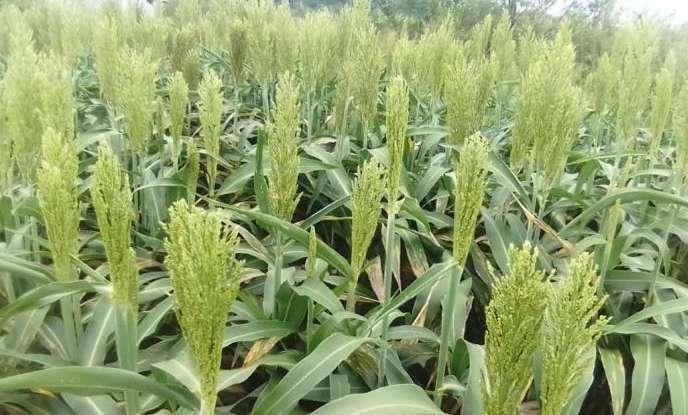
In May 2023, We Effect, our partners and donors implementing the Women Economic Empowerment in the Cotton Value Chain (WEECVC) Programme came together in Lusaka to reflect on the lessons from the previous phase of the programme, discuss the Midterm Review (MTR) findings and explore opportunities for communications and advocacy in the new phase.
Handloom Textiles and Technologies Association of Zambia (HATTAZ), the Zambia Cotton Ginners Association (ZCGA), two farmer organizations, Mozambique National Forum of Cotton Producers (FONPA) and Zimbabwe Farmers Union (ZFU), and the African Institute of Corporate Citizenship (AICC).
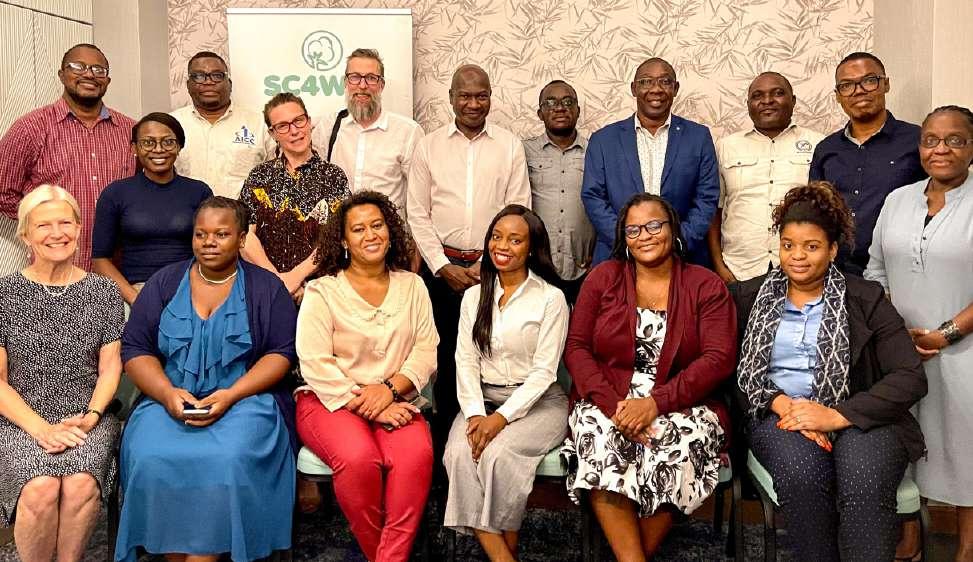
Some key findings from the reflection included:
· The cotton sector is a complex sector characterized by inequalities, injustice and exploitation of smallholder farmers.
· Women are most excluded and marginalized within this sector bearing the brunt of low pricing and the dominance of the private sector.
· The different contexts that exist in the four countries create opportunities and challenges in terms of this regional programme. The participants had an opportunity to visit the Loctaguna Organic Farm. The aim was to provide a remedial to the partners on the importance and advantages of organic farming as well as manufacturing of organic fertilizers.
Farmers are committed to protecting the environment, improving health, and eating delicious food, hence the option
to learn and practice organic farming.
Organic farming helps to improve soil health, practices such as crop rotation and cover cropping, help to build up the organic matter in the soil and improves its ability to retain water and nutrients. The hosting farmer emphasized that organic farming helps reduce pests and diseases as there are numerous organic ways of producing organic pesticides, for example from comfrey.
Another team had time to visit the Cotton farming area in Katete with the Swedish Embassy team from Adis Ababa. The purpose was to show the cooperative partners the work Women and Youth Farmers are doing. They successfully viewed the fields as well as the use of the handloom machines. (see pictures). The project span is twenty (24)months with a budget of (SEK) 18,000,000 Swedish Kroner.
We Effect Southern Africa is working with existing target group in the target communities reached in SC4WaY which was 37,600 smallholder farmers. The targeted number for Phase 2 is 35 000 people. This is to allow a slight increment given the interest the project generated during SC4WaY.
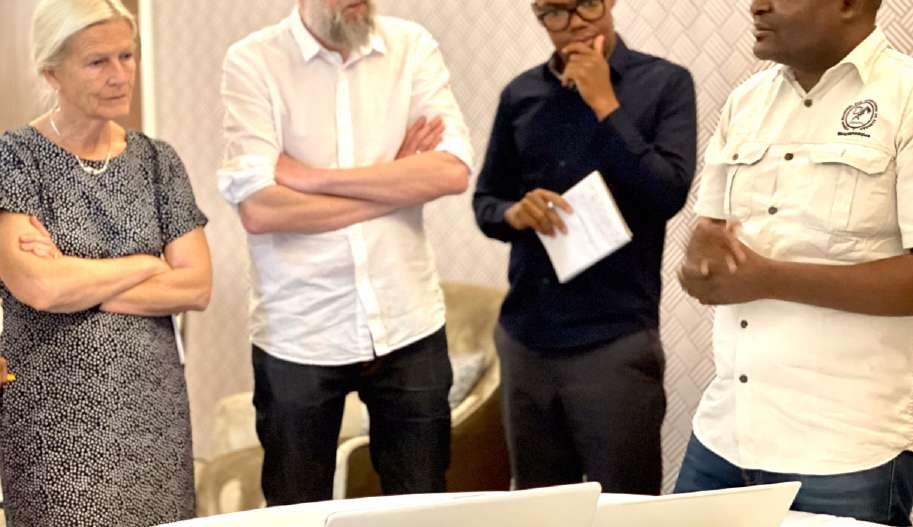
LEARNING TO LEARN LUSAKAHOSTS WEECVC

ThemonthofJune2023markedthestarting of the climate resilience and gender equality in implementation of the Partnerships for Food Mozambique (P4FoodMoz) program funded by SIDA/CIVSAM to be implemented from 2023 to 2027. The programme aims to support partner organizations to mobilize and organize women, men, and young people to affirm their equal, equitable and just right to adequate, sustainable and nutritiousfood.
Partnerships for Food, Climate Resilience and Gender Equality in Mozambique (P4FoodMoz) program is funded by Sida /CIVSAM and will be implemented from 2023 to 2027. The program aims to Empower partner organizations mobilizing and organizing women, men and young people to affirm their equal, equitable and just right to adequate, sustainable and nutritious food. Five partners organizations are the key implementers of 5 ongoing projects in the country are FONPA, IPERMO, Justiça Ambiental, Livaningo and UPCT. The Project is targeting 11522 beneficiaries, of which 5531 female and 5991 male and indirectly 1266793 people, mostly small holder farmers, being 445, 174 female and 821, 619 male located in Nampula, Manica, Zambezia and Maputo Province and city
The organizations that are partner to the CIVSAM Project are the National Forum of Cotton Producers of Mozambique (FONPA) whose project is on Sustainable Livelihood and Climate Resilience, the Mozambique Institute of Permaculture who will implement Project Innovative Technologies in Agriculture in Mozambique (TIAMO) in their project area which covers Mabubo, the Justiça Ambiental (JA) whose project is on Land, Livelihoods and Ecosystems which special focus on Climate Justice, Livaningo the Association for the Environmental Preservation and Protection with a project for Fostering Climate Resilience to Women and Gender Equality and the Provincial Union of farmers of Tete Province (UPCT) with their project onStrengtheningSustainableAgri-FoodSystems
The project is directly targeting 11,522 beneficiaries, from which 5,531 will be females and 5,991 being males and indirectly 12,66793 people, mostly small holder farmers, 445, 174 being female and 821, 619 males located in Nampula, Manica, ZambeziaandMaputoProvinceandcity.
All five partners launched their specific projects in their specific implementation districts, and all documented that government institutions, other civil society organizations and benefiting communities embraced the projects and pledged to give support. The TIAMO project was launched in Mahubo and the We Effect team graced the occasion as well as theMayorofBoane.
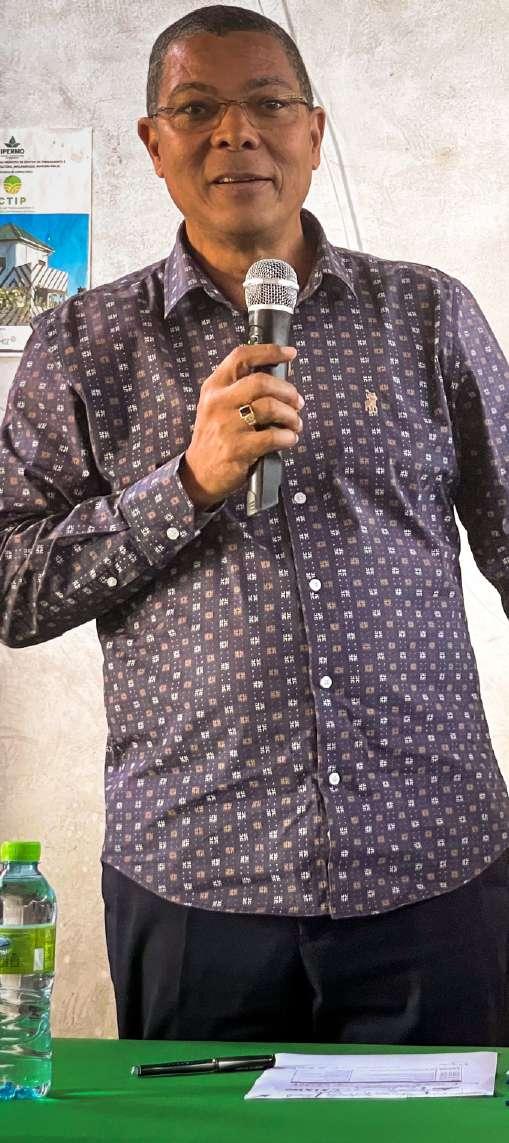
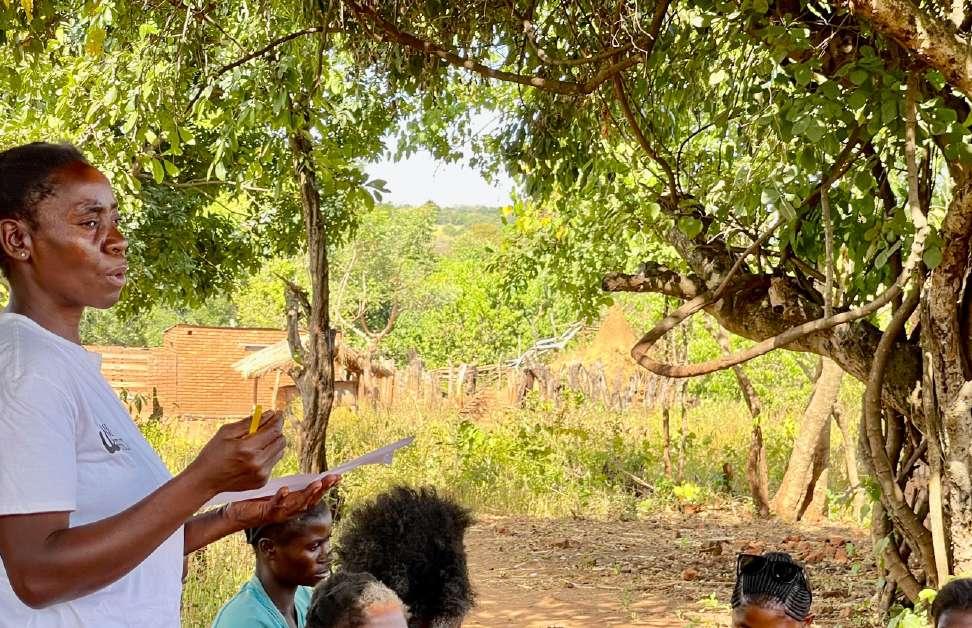

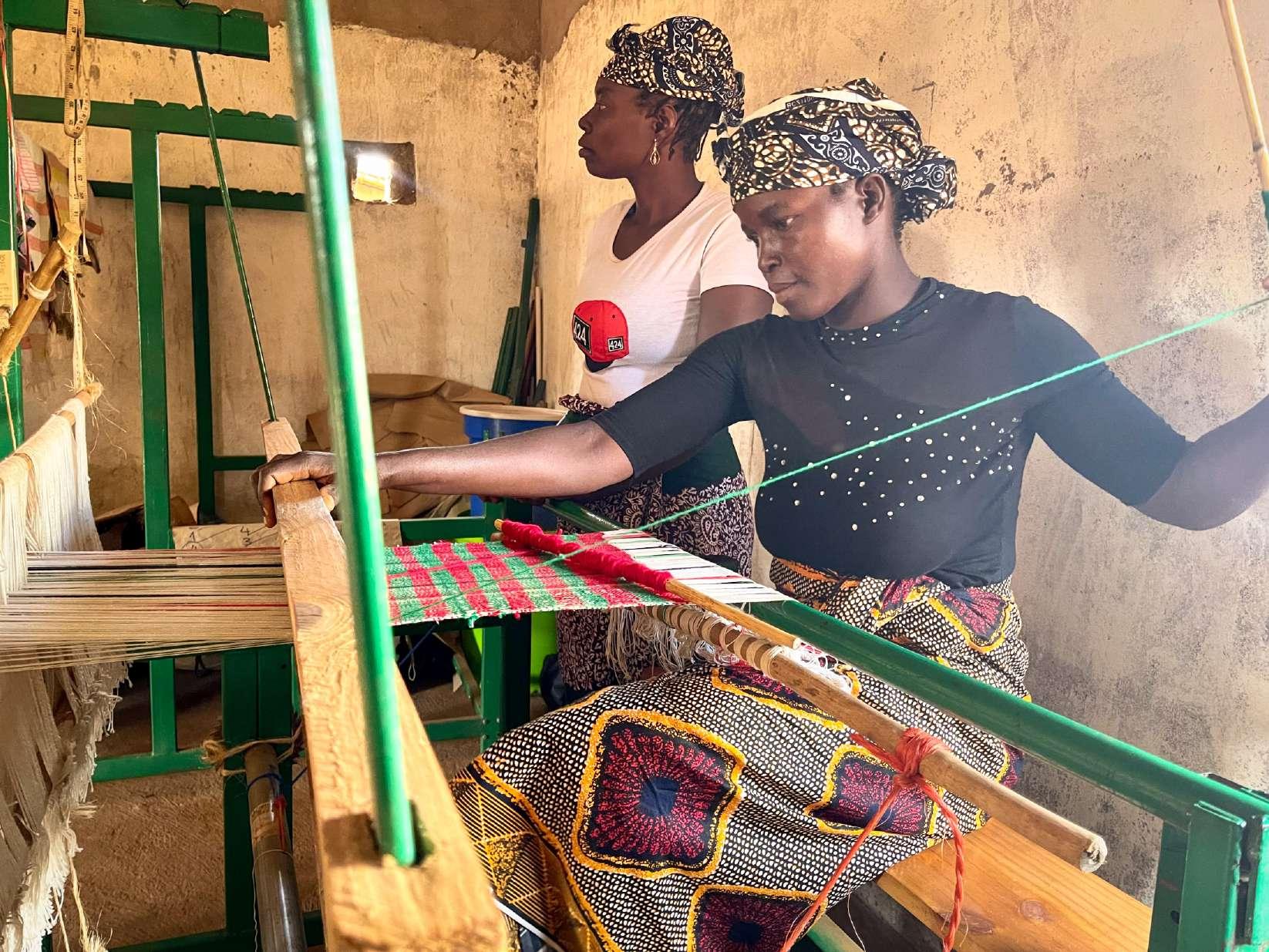
WLZ National Coordinator, Thandiwe
Chidavarume inspects produce in the greenhouse at Gambiza garden.
Photo Credit : Picture Perfect Media
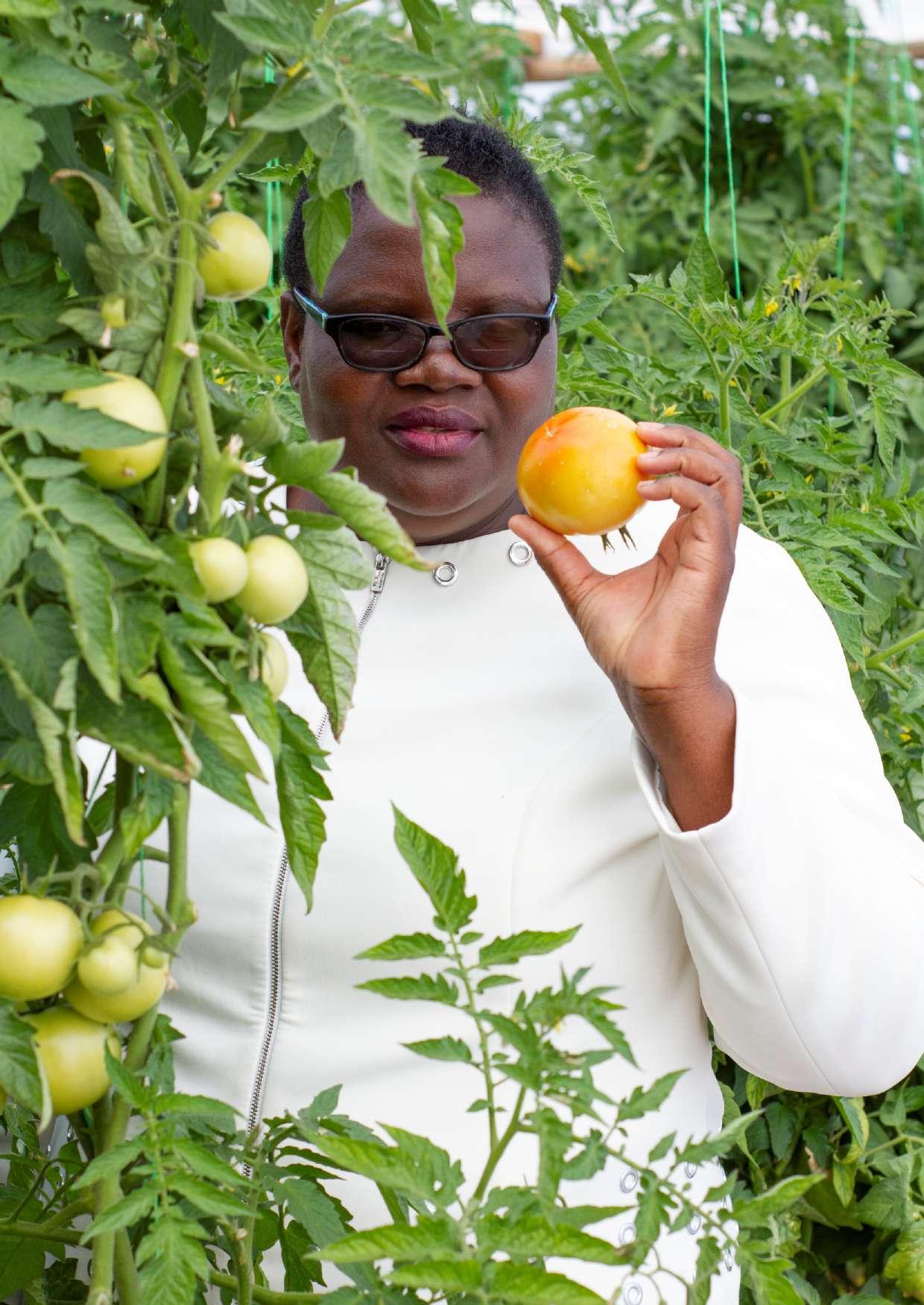
FONPAField Monitoring | Mozambique
